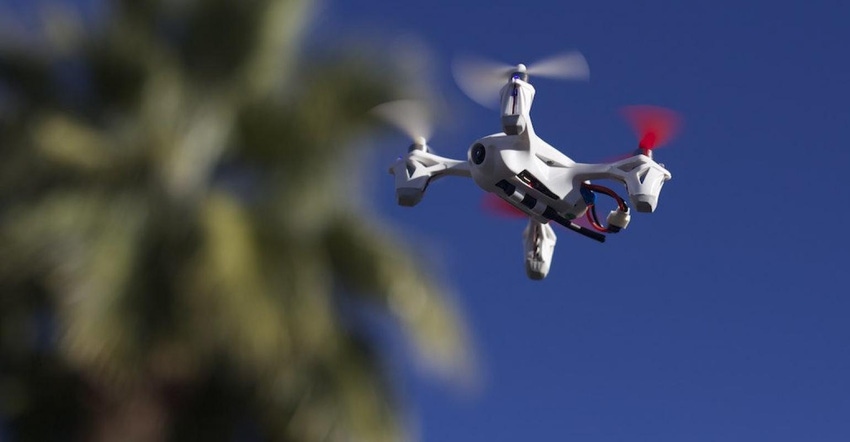Drones: Cool aviation hobby or dangerous spies in the sky?
A proposed regulation would require nearly all drones to broadcast their locations over the Internet at all times.
March 4, 2020

Drones — they’ve been a hot topic in agriculture in recent years. The application potential for these nifty tools are numerous. Fly over your crops and investigate problem areas in the field. Fly over your pastures and check tanks, gates and for calving cows. Take aerial photos of the farm or ranch to hang in the living room. Even in the simplest forms, drones are a way to just have fun with an aviation hobby, navigating airspace, taking photographs and relaxing after a hard day at work.
But like anything, troublemakers have to rain on a good parade. Drones have also been used in negative ways. Spies in the sky can now lurk on neighbors, take photographs on private property and become a noise and physical nuisance in places where they aren’t wanted.
In particular, one animal rights group, which I won’t name in this blog post, is notorious for flying over feedlots and hog operations, snapping photos and videos with drones to edit, dramatize and use in documentaries. They take these materials and blast property owners on Facebook and other channels. This has led to further harassment and negative press.
And what’s a landowner supposed to do? It’s against the law to shoot a drone down. (I mention this because this is a popular response I get on this topic.) But you’re also very vulnerable because you have no idea who owns the drone, who is flying overhead and what their intentions are if they are hovering above your home or property.
With no options for identifying who it is or what they are doing, you’re essentially a sitting duck and a target to spies in the sky. This is much more invasive than Google Earth, so what are our options for recourse if we feel like someone is erroneously entering our personal space and private property?
The Federal Aviation Administration has proposed a new regulation that would, “Require the remote identification of unmanned aircraft systems. The remote identification of unmanned aircraft systems in the airspace of the United States would address safety, national security, and law enforcement concerns regarding the further integration of these aircraft into the airspace of the United States while also enabling greater operational capabilities.”
While I’m normally all for letting people live and do their own thing, I also feel like unchecked, drone footage can be used against someone in a negative way, and there is no way for the individual to protect themselves from the spies in the skies.
The comments period for this proposed rule is now closed. However, with 34,000+ comments, the majority of the feedback was negative to the rule, with many saying it would kill their aviation hobby.
Here’s another perspective: ARS Technica reports, “The new regulations probably wouldn't kill the hobby of flying radio-controlled airplanes outright, but it could do a lot of damage. Owners of existing drones and model airplanes would face new restrictions on when and where they could be used. The regulations could effectively destroy the market for kit aircraft and custom-designed drones by shifting large financial and paperwork burdens on the shoulders of consumers.
“The new rules are largely designed to address safety and security concerns raised by law enforcement agencies. They worry that drones flying too close to an airport could disrupt operations or even cause a crash. They also worry about terrorists using drones to deliver payloads to heavily populated areas.
“To address these concerns, the new FAA rule would require all new drones weighing more than 0.55 pounds to connect over the Internet to one of several location-tracking databases (still to be developed by private vendors) and provide real-time updates on their location. That would enable the FAA or law enforcement agencies to see, at a glance, which registered drones are in any particular area.
“But critics say the rules impose massive costs on thousands of law-abiding Americans who have been quietly flying model airplanes, quad-copters, and other small unmanned aircraft for years—and, in many cases, decades.”
Read more about this proposed rule here and let me know your thoughts on the new drone restrictions.
The opinions of Amanda Radke are not necessarily those of beefmagazine.com or Farm Progress.
About the Author(s)
You May Also Like




.png?width=300&auto=webp&quality=80&disable=upscale)
